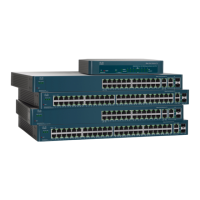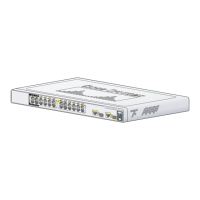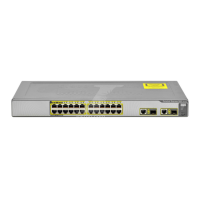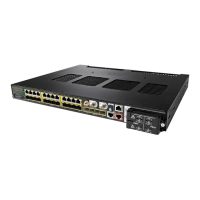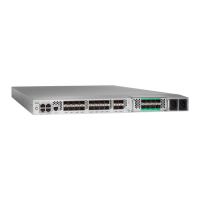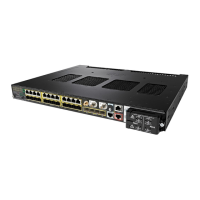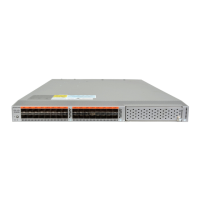Administration: Stack Management
Software Auto Synchronization in Stack
Cisco 500 Series Stackable Managed Switch Administration Guide 82
5
• Apply related user configurations to the slave unit.
• Exchange dynamic information such as port STP state, dynamic MAC
addresses, and link up/down status between the master and the slave unit.
Packet forwarding on the slave unit resumes after the state of its ports are
set to forwarding by the master according to STP.
NOTE Packet flooding to unknown unicast MAC addresses occurs until the
MAC addresses are learned or relearned.
Reconnecting the Original Master Unit After Failover
After failover, if the original master is connected again, the master selection
process is performed. If the original master (unit 1) is reselected to be the master,
the current master (unit 2, which was the original backup unit) is rebooted and
becomes the backup once again.
NOTE During master/backup failover, the up time of the backup unit is retained.
Software Auto Synchronization in Stack
All the units in the stack must run the same software version (firmware and
bootcode). Each unit in a stack automatically downloads firmware and bootcode
from the master unit if the firmware and/or boot code that the unit and the master
are running is different. The unit automatically reboots itself to run the new version.
Stack Unit Mode
The stack unit mode of a device indicates whether it is configured to be part of a
stack or to operate on its own.
Devices can operate in one of the following stack unit modes:
• Standalone—A device in Standalone stack unit mode is not connected to
any other device and does not have a designated stack port.
• Native Stacking—A device in Native Stacking mode can be connected to
other devices of the same type through its stack ports to form a stack. All
units in a native stack must be of the same type (either all Sx500s, all
SG500Xs/ESW2-550Xs or all SG500XGs).
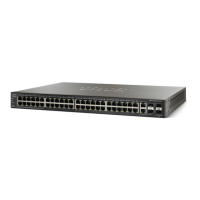
